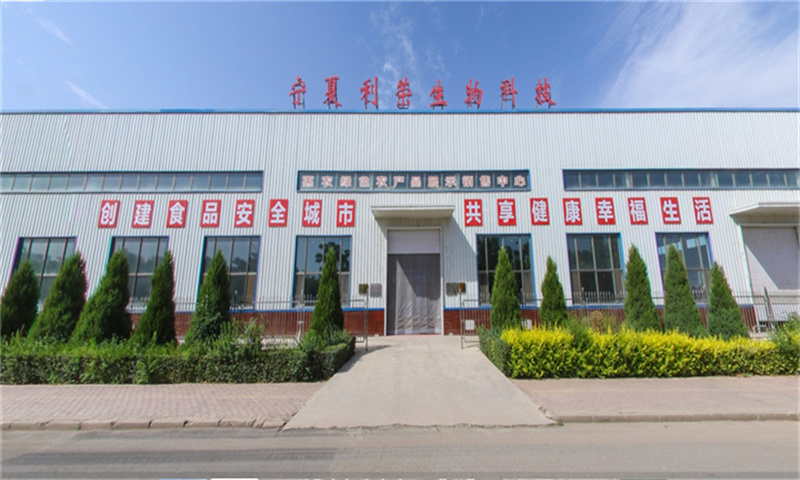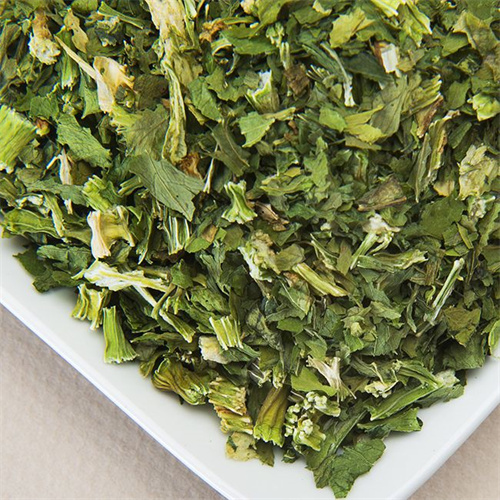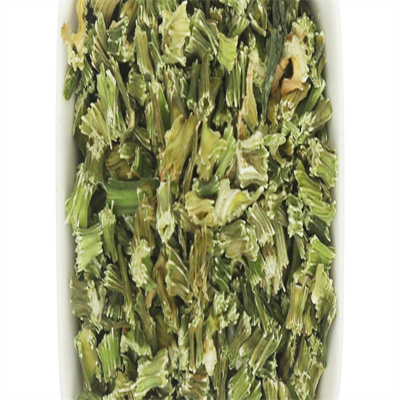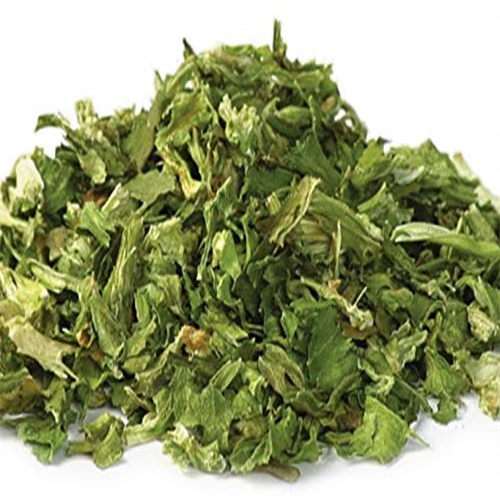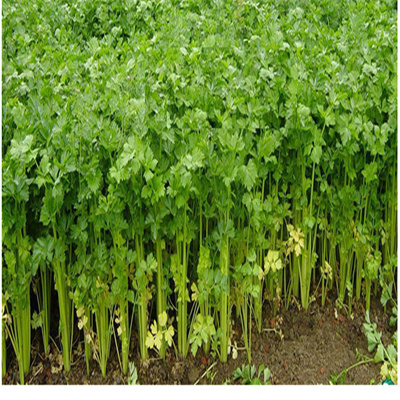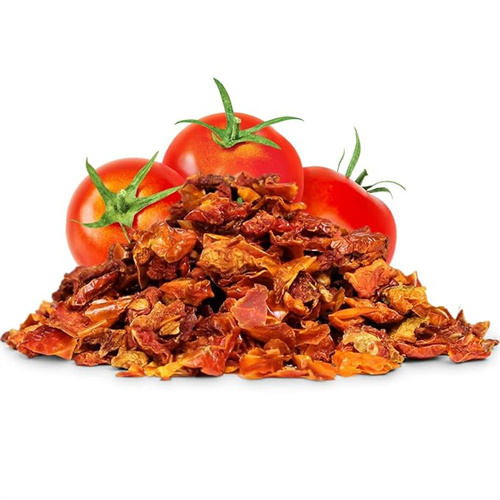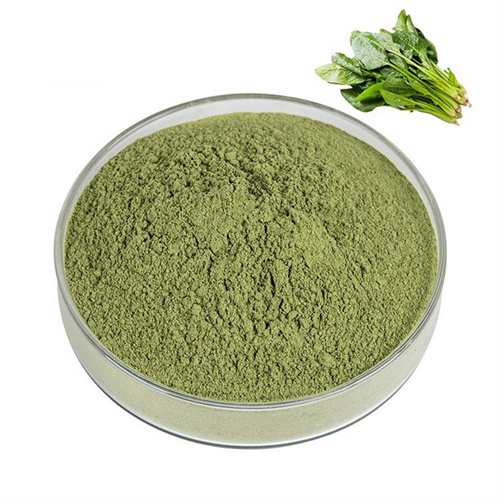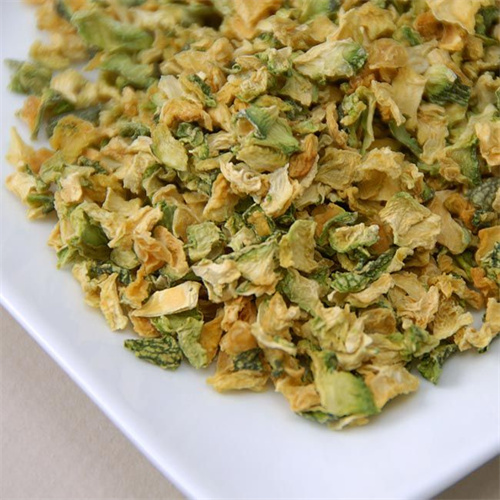Dehydrated celery stalk&leaf
Ingredients: Celery
Storage method: dry, ventilated, cool, sealed
Food additives: none
Series: Dehydrated vegetables
Packing: packaging
Whether it is organic food: No
Vegetable type: Celery
Introduction to celery
Dehydrated celery stalk is a vegetable with high nutritional value. It is rich in more than 20 nutritional elements such as protein, carbohydrate, dietary fiber, cellulose, calcium, phosphorus, iron and sodium. Celery is rich in apigenin, which can expand blood vessels and reduce blood pressure smoothly.
Dehydrated celery stalk has a high content of calcium and phosphorus, which can enhance bone health.
Dehydrated celery stalk has high cellulose content. After digestion, it can produce an antioxidant, inhibit intestinal bacteria, accelerate intestinal peristalsis, promote excretion, reduce the contact time between carcinogens and colonic mucosa, and prevent colon cancer.
Packing method: Packing
Vegetable type: Celery
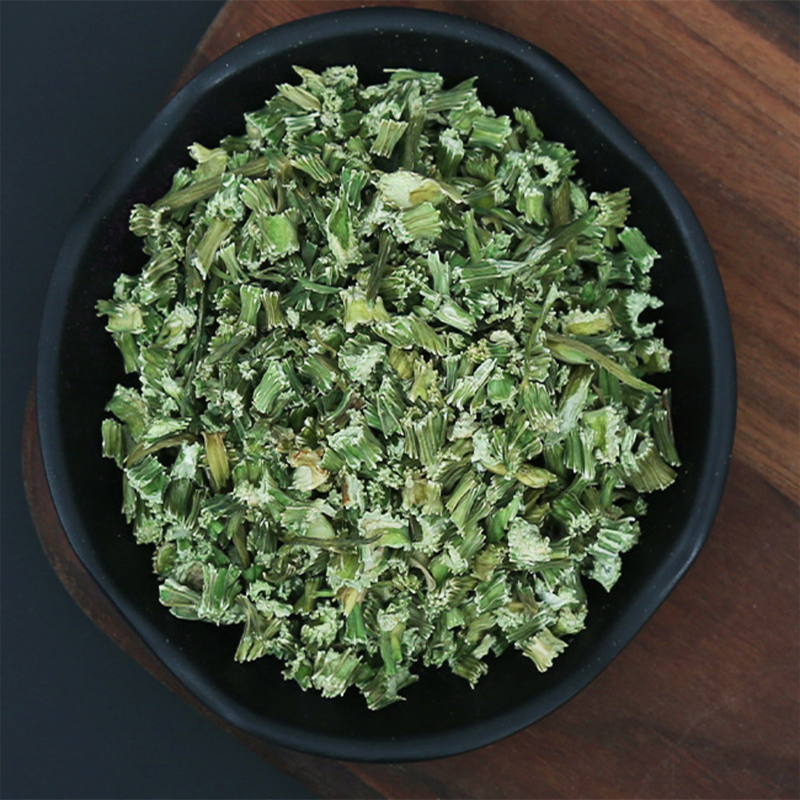
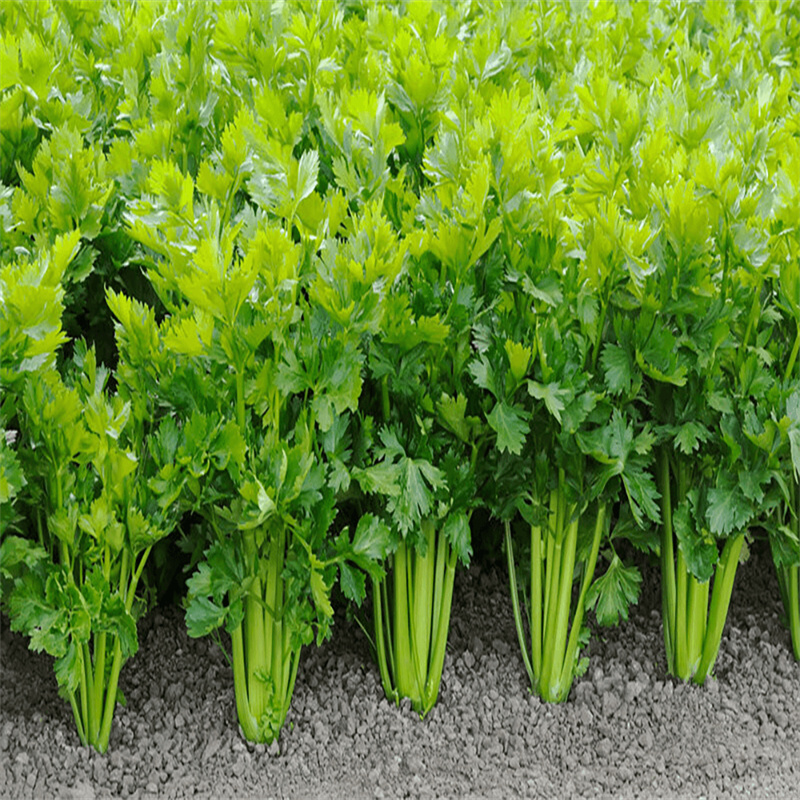

Ningxia Lirong Biotechnology Co., Ltd. was established in February 2015, is a wholly-owned subsidiary of Ningxia Shizuishan Lvbao Industry and Trade Co., Ltd. the purpose of the creation of Ningxia Lirong Biotechnology Co., Ltd. is in order to better adapt to the strict requirements of the overseas high-end market for product quality and technology, we invested 50 million yuan to build an annual output of 300 tonnes of dehydrated vegetables automated production line supporting facilities, we work closely with international We cooperate closely with international first-class enterprises in the field of food safety and green sustainable planting to improve food safety and product quality. The company produces 3,000 tonnes of dehydrated vegetable products annually, with an output value of 75 million yuan and a profit tax of 8.25 million yuan.
The group's Huinong Green Harvest Vegetable Production and Marketing Co-operative Society has a total of 3,100 acres of vegetable planting bases, and has signed 2,500 acres of vegetable planting orders with farmers. It adopts advanced green agricultural management concept in planting management, and the new technologies adopted by the base include soil testing and formula fertilisation technology, pest and disease green prevention and control technology, seedling transplanting technology, three-dimensional compound set-planting technology, water-fertilisation integration technology, water-saving irrigation technology, etc. The company has a team of agricultural technicians. The company has a team of agricultural technology personnel, hired a professor of Ningxia University College of Agriculture, the autonomous region's chief vegetable experts and the company's own training of agronomists, planting experienced old clothes, together with the vegetable base planting and pesticide residue control to provide reliable technical support, the well on the whole process of vegetable production monitoring and traceability, to ensure that each batch of vegetables from the base meets the strict requirements of the U.S. FDA and the European Union. The company employs 350 year-round workers and 500 seasonal workers, driving farmers to increase their income by 24 million yuan, and solving the employment of landless farmers and migrants 420 people.
Innovation is the first driving force for development. The company has achieved stage-by-stage success in equipment development and process innovation. The company's R & D team of technicians, developed a vegetable stem and leaf separation equipment, vegetable stem and leaf pulverising equipment, vegetable multi-stage sorting system equipment, are rated by the State Patent Office for utility model patents.
In order to expand the market and extend the industrial chain, we actively develop new products. The main products are spinach powder, celery granules (leaves), leek leaves, tomato granules, kale leaves, green and red pepper granules, zucchini granules, pumpkin granules (powder), carrot granules, based on the development of horseradish slices, red beet (powder), alfalfa powder, etc., which contribute to the development of dehydrated vegetable industry.
